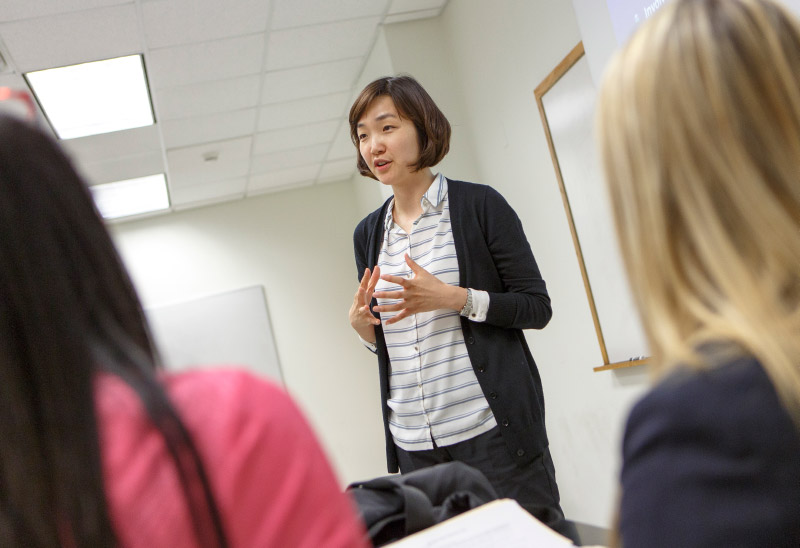When the economy gets tough, arts, culture and humanities nonprofits increase spending on fundraising, according to new research from The University of Texas at Dallas.

Dr. Young-Joo Lee
The study, published online in Voluntas: International Journal of Voluntary and Nonprofit Organizations, is one of the first to examine how fundraising priorities changed before, during and after the recession that began in 2007.
Dr. Young-Joo Lee, associate professor of public and nonprofit management in the School of Economic, Political and Policy Sciences, co-authored the study with Jongmin Shon of Rutgers University.
“Nonprofits have to make strategic choices. During a downturn, they could find a way to get revenue from commercial activities or do more fundraising,” Lee said. “We found that if they relied on fundraising to begin with, they will do more of what they’re good at already.”
For the study, the authors reviewed publicly available IRS Form 990s to determine what percentage of total expenses were spent on fundraising at 1,286 U.S. arts, culture and humanities nonprofits between 2005 and 2012.
They focused on those organizations because they tend to rely more on fundraising than nonprofits that charge fees for services they provide, which makes them more vulnerable during an economic downturn.
“Nonprofits have to make strategic choices. During a downturn, they could find a way to get revenue from commercial activities or do more fundraising. We found that if they relied on fundraising to begin with, they will do more of what they’re good at already.”
Dr. Young-Joo Lee, associate professor of public and nonprofit management in the School of Economic, Political and Policy Sciences
The authors caution that scholars have raised concerns about the accuracy of the 990 forms and stress the need for clearer guidelines for how nonprofits should calculate fundraising expenses.
In recent years, nonprofits have been under pressure to lower the amount they spend on fundraising.
The study found that the nonprofits spent an average of 6.71 percent of their budgets on fundraising in 2005. The average rose to a high of 6.95 percent in 2009.
The proportion of money spent on fundraising was higher in counties with higher unemployment rates, according to the findings.
“Those who rely more on donations increase their fundraising even more during the recession than those that rely less on donations,” Lee said.
Lee, who teaches nonprofit management and theory, said she became interested in studying nonprofits while earning a master’s degree in public affairs at UT Austin and working with a local charity.
In another study published online in Voluntas in February, Lee found that nonprofits that rely on income from fees and services use fewer volunteers. And in a 2017 study in the Journal of Nonprofit & Public Sector Marketing, she found that people who had college educations and came from high-income households or were self-employed were more likely to become international volunteers.